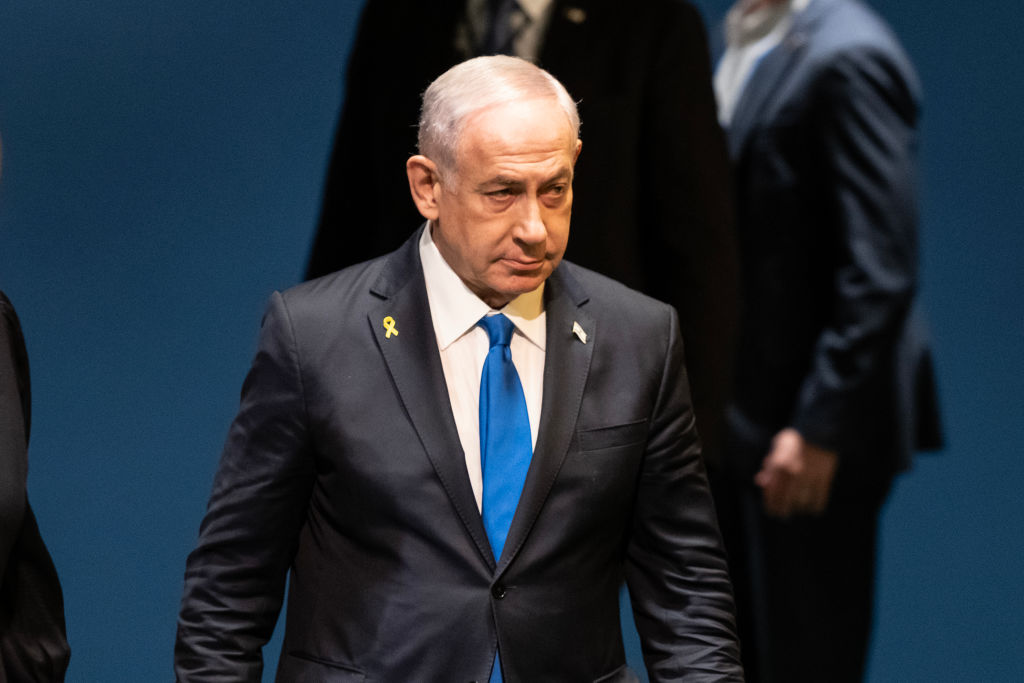Topline
The International Criminal Court issued arrest warrants on Thursday for Israeli Prime Minister Benjamin Netanyahu, former defense minister Yoav Gallant and a high-ranking Hamas official, accusing the three leaders of war crimes during Israel’s war with the militant group.
Key Facts
The ICC announced it found “reasonable grounds” that Netanyahu and Gallant “bear criminal responsibility” for using starvation as a method of warfare in Israel’s war with Hamas, alleging the leaders “created conditions of life” intended to “bring about the destruction of part of the civilian population in Gaza.”
The court accused Hamas leader Mohammed Deif—who Israel said was killed in an airstrike in July—of crimes against humanity and war crimes, including murder, torture, rape and hostage-taking related to the group’s attack on Israel on Oct. 7, 2023.
Israel’s foreign ministry challenged the ICC’s jurisdiction in September, arguing the Hague-based court didn’t provide Israel adequate time to investigate the court’s allegations before arrest warrants were issued, though the ICC rejected Israel’s challenge.
Chief Critic
Israeli Foreign Minister Gideon Sa’ar condemned the ICC for the arrest warrants, saying the court had “lost all legitimacy for its existence and actions” and acted as a “political tool serving the most extreme elements working to undermine peace, security and stability in the Middle East.” Itamar Ben-Gvir, Israel’s national security minister, called the arrest warrants an “unparalleled disgrace, though not surprising at all.”
Loading...
Will Netanyahu Be Arrested?
The ICC, which works in cooperation with the United Nations, relies on other countries that recognize its jurisdiction to carry out its arrest warrants. Several countries, including the U.S. and China, do not recognize the court’s jurisdiction and would not be asked to arrest Netanyahu, who spoke to Congress in July. Even if a country does recognize its jurisdiction, it doesn’t indicate the arrest warrants will be carried out: Mongolia did not arrest Russian President Vladimir Putin—who was accused of war crimes in Russia’s war with Ukraine—when he visited the country in September.
Key Background
The ICC signaled in May it was seeking arrest warrants for several Israeli and Hamas leaders, including Netanyahu, over alleged war crimes committed on Oct. 7 and during the conflict in Gaza. Karim Khan, the ICC’s chief prosecutor, said Israel’s prime minister and Gallant were facing charges of “causing extermination” in Gaza. The court, founded in 2002, has jurisdiction to prosecute cases of genocide, crimes against humanity or war crimes, though it does not have the power to enforce those warrants. The U.S. previously warned against the ICC issuing warrants for Netanyahu, saying it would derail peace negotiations in the Middle East. President Joe Biden claimed it was “outrageous” for the court to seek warrants for both Israel and Hamas leaders that accuse them of similar crimes, saying there was “no equivalence—none—between Israel and Hamas.” Secretary of State Antony Blinken also criticized the ICC’s decision, suggesting it would “jeopardize ongoing efforts to reach a ceasefire agreement that would get hostages out.”
Loading...
